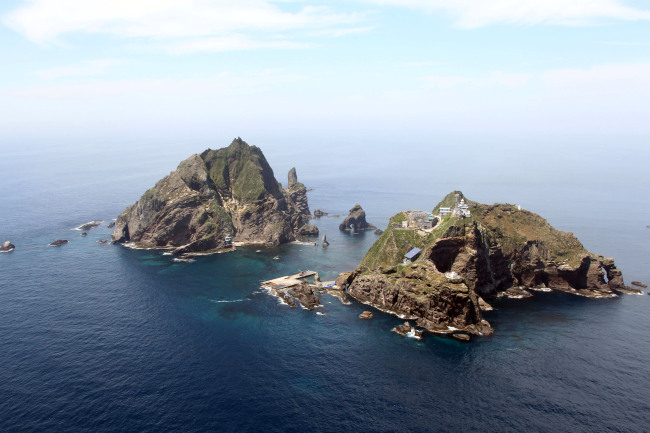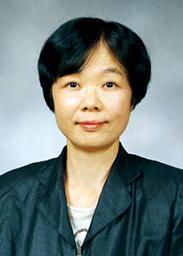Japan’s ‘incorporation’ of Dokdo in 1905 was not just about sea lions
By Shin Hyon-heePublished : Oct. 3, 2012 - 19:51
A newly forged cultural agreement will reinforce relations between the two countries
The explanation presented by the Japanese government on the annexation of Dokdo is oversimplified. Nakai Yozaburo, a resident of Shimane Prefecture in Japan, wished to obtain a exclusive permit to hunt sea lions on Dokdo, according to the website of the Ministry of Foreign Affairs. In 1904, he filed a petition with the Japanese government and the islets were subsequently “incorporated” into Japanese territory on Jan. 28, 1905, it says.
There are untold facts in the MOFA’s account, however. At that time, Japan was at war with Russia over supremacy in Korea and Manchuria. Surveillance information and communication were vital and Japanese officials found the island a potentially useful base for monitoring Russian ships and laying submarine cables. Meanwhile, Nakai submitted a request for the incorporation and lease of the islets as suggested by Maki Bokushin, then director of the fishery bureau at the Ministry of Agriculture and Commerce. Two years earlier, however, Maki wrote a recommendation for a book, titled “Kankai tsgyo shishin,” or “A Guide to Fisheries in Korean Waters,” which apparently suggested that Dokdo was Korean territory.
The explanation presented by the Japanese government on the annexation of Dokdo is oversimplified. Nakai Yozaburo, a resident of Shimane Prefecture in Japan, wished to obtain a exclusive permit to hunt sea lions on Dokdo, according to the website of the Ministry of Foreign Affairs. In 1904, he filed a petition with the Japanese government and the islets were subsequently “incorporated” into Japanese territory on Jan. 28, 1905, it says.
There are untold facts in the MOFA’s account, however. At that time, Japan was at war with Russia over supremacy in Korea and Manchuria. Surveillance information and communication were vital and Japanese officials found the island a potentially useful base for monitoring Russian ships and laying submarine cables. Meanwhile, Nakai submitted a request for the incorporation and lease of the islets as suggested by Maki Bokushin, then director of the fishery bureau at the Ministry of Agriculture and Commerce. Two years earlier, however, Maki wrote a recommendation for a book, titled “Kankai tsgyo shishin,” or “A Guide to Fisheries in Korean Waters,” which apparently suggested that Dokdo was Korean territory.

Though Dokdo had been a source of diplomatic spats, the Japanese government at the time did not bother to make an inquiry to Korea, nor did it inform neighboring countries of the “incorporation.”
Why bother informing neighbors? By the time of the Russo-Japanese War of 1904-05, Korea was virtually occupied by the Japanese army. Japan had forcibly appropriated Korean land for military purposes and succeeded in depriving Korea of its financial and diplomatic autonomy. Within a year after the merger of Dokdo, Korea would lose full diplomatic sovereignty and become a colony of Japan. The acquisition of Dokdo was the beginning of Japan’s colonization of Korea.
At present, the United States remains a concerned friend of the two countries. It maintains a neutral position, urging both to approach the territorial issue with cooler heads. It should be remembered, though, that Washington played a role in the making of today’s Dokdo issue.
Japan’s advance to occupy Korea was possible due partly to the assistance of the U.S., which ignored the “good offices” article in the 1882 treaty with Seoul. Tokyo fought the Russo-Japanese War with the “invisible” support of the U.S. and Britain, both of which feared Russian expansion in Northeast Asia. The Taft-Katsura Agreement of July 1905, reached prior to the Portsmouth Peace Treaty in September 1905, ensured that the U.S. take the Philippines and Japan take Korea. After all, both the U.S. and Japan were imperialist powers for which Korea was nothing but the object to victimize.
To justify Japan’s possession of Dokdo, the MOFA today emphasizes a memorandum written in 1951 by Dean Rusk, then U.S. assistant secretary of state, in which the islets are said to have been “never treated as part of Korea.” Apart from the ongoing discussion of its validity as proof of Japan’s possession, the memorandum embodies Washington’s inclination to favor Japanese ownership of the islets during the occupation period immediately after World War II. While further research by scholars will clarify how this understanding of Dokdo was formed, it should be noted that the U.S. was well aware of the strategic value of Dokdo. The U.S. government used the islets as an aerial bombing range from 1947 to 1953. On June 8, 1948, a number of South Korean fishermen were killed due to a lack of prior warning. While the U.S. eventually chose not to support either country’s position, its interest in Dokdo during that period should be viewed in the context of the Cold War.
In integrating Dokdo in 1905, Tokyo saw the islets only from a strategic viewpoint. Japanese officials were less interested in sea lion hunting than in utilizing Dokdo for the expansion of the empire. Likewise, the U.S.’ concern in 1951 was not about the safety of South Korean fishermen, people whom it had “liberated” from the fetters of Japanese colonial rule. In the eyes of Washington, Dokdo was instead a tiny dot to use for American supremacy in the Cold War. The MOFA’s claim to Dokdo based upon its 1905 incorporation reveals that it has inherited the mindset of Japanese imperialism, which was supposed to have been overcome after World War II.
Perhaps the early 20th century was a time when people believed in force. Yet there is no reason why we must keep the same mindset when there are numerous global issues and international cooperation is essential. The U.S. should admit its responsibility, even if it was remote, in the Dokdo issue so that this ongoing argument may be resolved through justice. At the same time, Tokyo should understand that it is only hurting its reputation in the international community by claiming the ownership of the islets it gained through imperialist methods. That insistence is a deception toward both its own citizens and its neighbors, whether they are living, dead, or yet to be born.

By Junko Kim
Junko Kim is a Japanese citizen and an assistant professor of Japanese language at Hongik University in Yeongi, South Chungcheong Province. She obtained her master’s degrees in international affairs from the University of Tsukuba in Japan and in library and information science from the University of California, Los Angeles. ― Ed.





![[From the Scene] Monks, Buddhists hail return of remains of Buddhas](http://res.heraldm.com/phpwas/restmb_idxmake.php?idx=644&simg=/content/image/2024/04/19/20240419050617_0.jpg&u=20240419175937)








![[From the Scene] Monks, Buddhists hail return of remains of Buddhas](http://res.heraldm.com/phpwas/restmb_idxmake.php?idx=652&simg=/content/image/2024/04/19/20240419050617_0.jpg&u=20240419175937)

![[KH Explains] Hyundai's full hybrid edge to pay off amid slow transition to pure EVs](http://res.heraldm.com/phpwas/restmb_idxmake.php?idx=652&simg=/content/image/2024/04/18/20240418050645_0.jpg&u=20240419100350)

![[Today’s K-pop] Illit drops debut single remix](http://res.heraldm.com/phpwas/restmb_idxmake.php?idx=642&simg=/content/image/2024/04/19/20240419050612_0.jpg&u=)